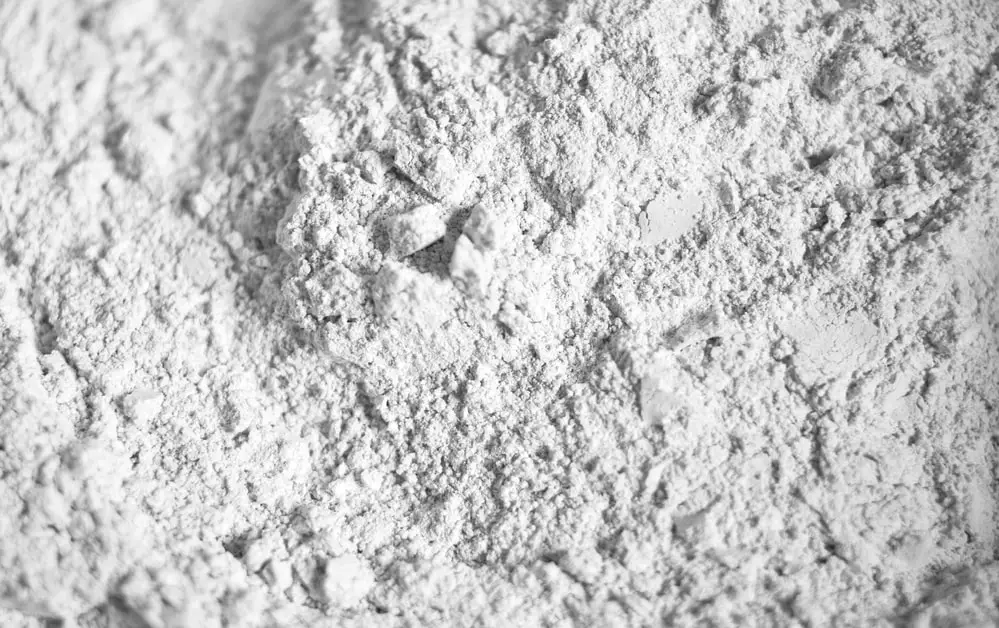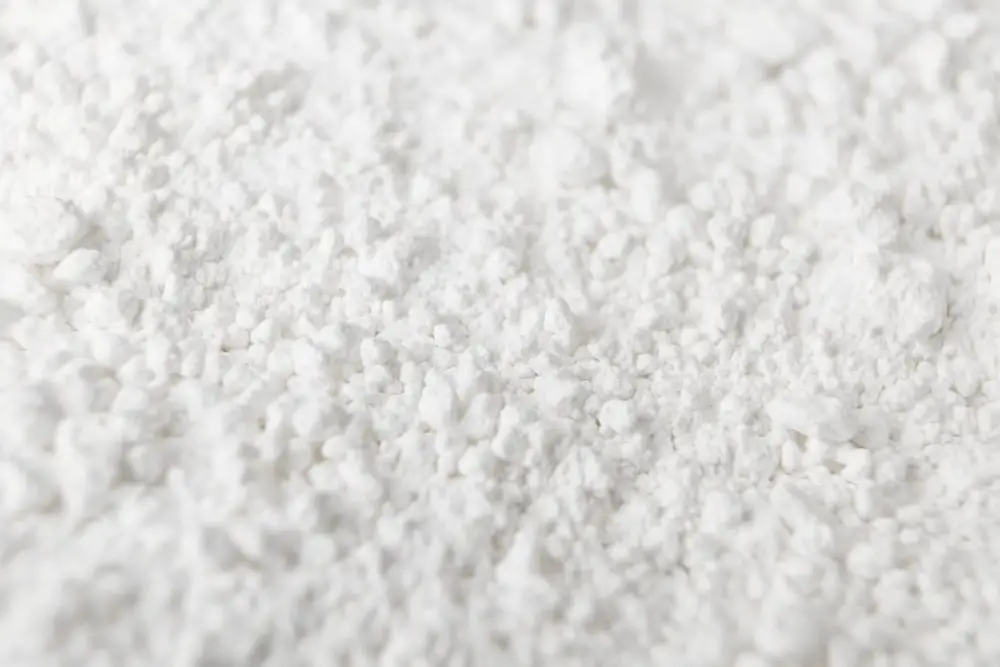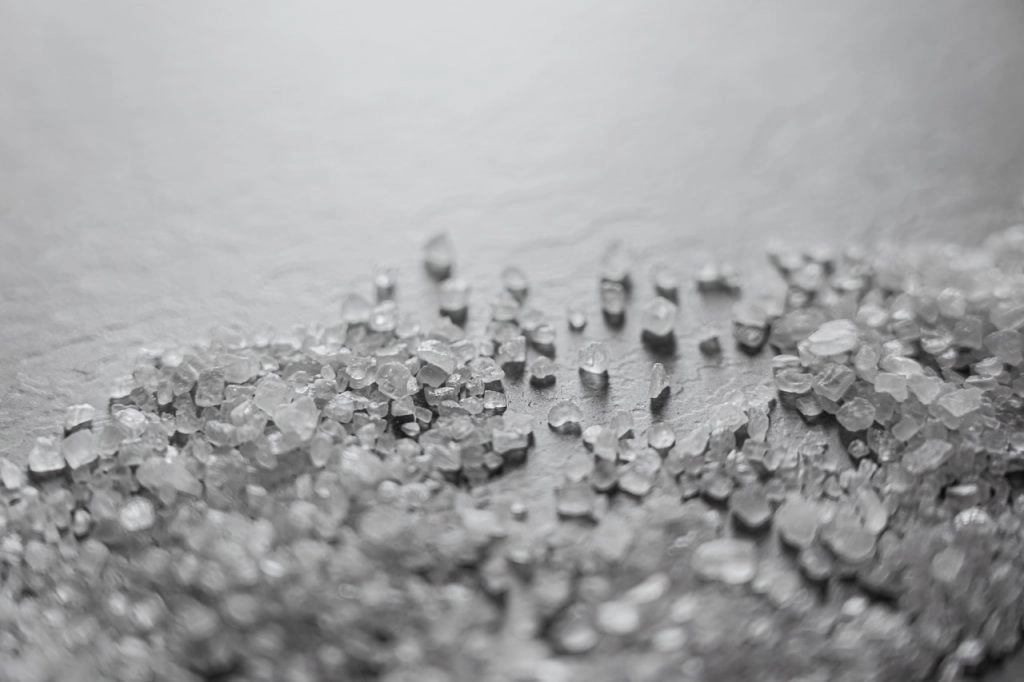Sodium benzoate is an industrial preservative that can be found in many consumer products, such as sodas, packaged foods, and even film development materials. It also appears in a variety of skincare products.
This post may contain affiliate links. Read the full disclosure here
The preservative comes in the form of a crystalline powder that when dissolved in water, forms a colorless, transparent liquid. Its use is surrounded by controversy because of misconceptions about it being carcinogenic.
What is Sodium Benzoate?
Sodium benzoate is created by combining two ingredients, benzoic acid and sodium hydroxide. Benzoic acid is a good preservative alone, but when the sodium hydroxide is added, the preservative breaks down into a more usable form that dissolves faster than the benzoic acid alone.
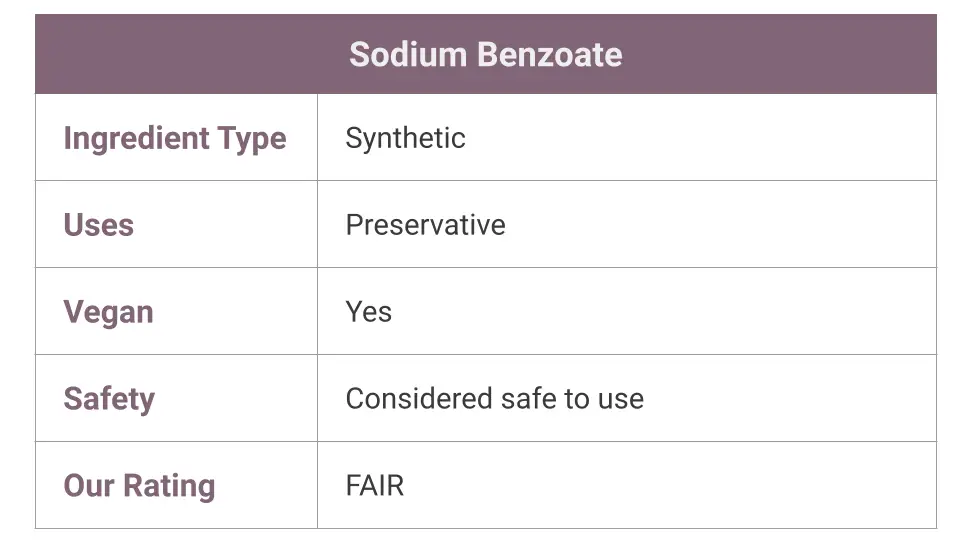
Sodium Benzoate Benefits and Uses
Sodium benzoate is commonly used in the skincare industry to prevent fungi and bacteria from growing in products, such as face creams, liquid foundations, and deodorant . This helps prolong their shelf life, creating advantages for both the retailers who sell these products and the consumers who purchase them.
The benzoic acid is absorbed into the cells of microorganisms that are found in cosmetics to result in a sharp decrease in the anaerobic fermentation of glucose in cells that have a PH of 5 or lower. Under these conditions, microorganisms are inhibited from growing and surviving, therefore preventing skincare products from spoiling
Additionally, the preservative functions to inhibit corrosion in the production of the metallic materials that are used in cosmetic packagings, such as lipstick holders metal powder compacts.
Is Sodium Benzoate Natural?
Sodium benzoate naturally exists as the sodium salt found in benzoac acid. Both of these ingredients occur naturally in plant-based foods, such as fruits and vegetables, and also in shellfish and certain dairy products. However, in almost all cases today, it is produced synthetically as this enables manufacturers to fulfill demand for it faster and less expensively.
Is Sodium Benzoate Safe?
Among its many uses, studies support sodium benzoate as a safe ingredient for topical use on the skin. Even though an incompatibility exists when it is mixed with cosmetic compounds that are formulated with Vitamin C, those effects are counterbalanced by other chemical reactions during the manufacturing process.
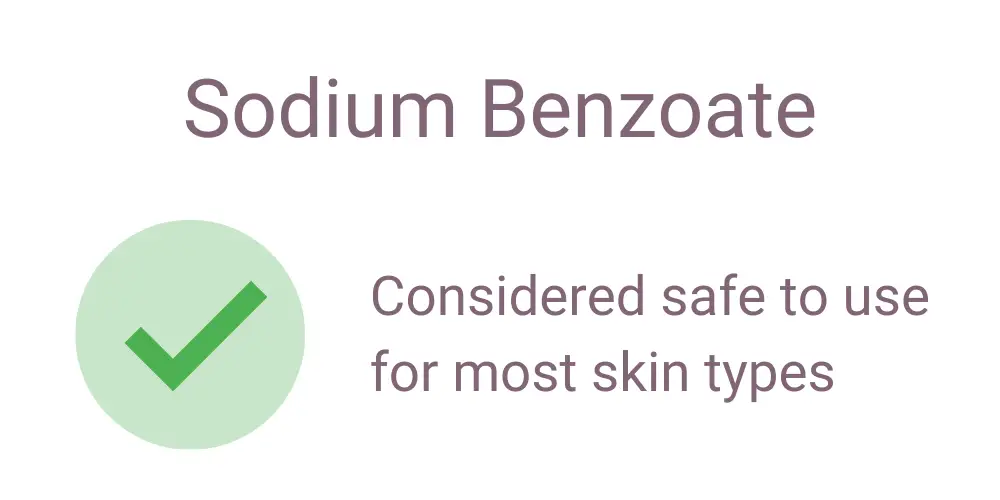
The combination can cause a chemical reaction that results in the formation of benzene, a known cancer-causing ingredient. The International Journal of Occupational and Environmental health reports that cancer induced by this combination of ingredients was discovered as early as the late 1920s. However, modern formulation methodology enables manufacturers to prevent adverse reactions from occurring between the two products.
Despite highly-publicized discussions and negative reports that surround the use of sodium benzoate in cosmetics due to its ability to produce benzene, the reaction results in such small quantities that the FDA has approved its use in foods, and it has deemed it safe for consumers.
Additional evidence is required to positively determine whether the presence of Vitamin C and sodium benzoate together in a skincare product is dangerous, but research has determined that it is unlikely to be harmful. Findings by the US Food and Drug Administration, for instance, report that beauty products that contain high concentrations of Vitamin C do not form benzene at all. The FDA has further determined that beauty and hair care products that contain less than 0.1 percent sodium benzoate are considered safe.
Vitamin C causes the high concentrations of sodium benzoate to inhibit free radicals rather than causing a negative reaction. Interestingly, products that have a PH of 3 or above are even safer than products with a lower PH value. PH balances of 7 or higher inhibit the formation of benzene altogether.
Another factor in preventing cosmetic products from forming benzene depends on the exposure of the products to light or heat. Cosmetic manufacturers can prevent the formation of benzene in their products by following safe practices. If cosmetics do not have high concentrations of Vitamin C, benzene is unable to form.
It is not considered to be a broad-spectrum preservative for use in cosmetics and, according to the website, Independent Chemical, it should be combined with other types of preservatives. It is most commonly paired with potassium sorbate in products that have low PH ratings. This is noted for its effects on mold and yeast. Furthermore, when the preservative is combined with caffeine, it can provide UVB protection through a naturally-occurring screen effect. It also produces antioxidant activity.
Sodium Benzoate Comedogenic rating
Each ingredient in skin care products can produce a different reaction according to the user’s skin type allergies, age, and other factors. The comedogenic score of a product determines the likelihood that it will clog pores. It is a zero-to-five rating, with zero meaning the product is not comedogenic at all, and five is the most likely.
Sodium benzoate does not have a comedogenic rating.
Dangers and Concerns
Studies suggest that benzoate, one of the powder’s primary ingredients, can convert, under certain conditions, to a known carcinogen called benzene. The likelihood of the conversion increases when products containing sodium benzoate are exposed to excess light and heat.
Storing products that contain sodium benzoate can also exacerbate the chances of conversion. It is not a carcinogen or toxin on its own. Vast amounts would have to be consumed rather than applied topically for any serious adverse effects to be noted.
What Types of Products Contain Sodium Benzoate?
Personal care products that contain sodium benzoate include, but are not limited to:
- Hair products
- Moisturizers
- Sunscreen
- Baby wipes
- Serums
- Toothpaste
Manufacturers of toothpaste often add preservatives to their products in order to inhibit the growth of harmful microorganisms that can cause gum disease and other dental problems. Compared to other preservatives that are used for this purpose, sodium benzoate is a good choice when one takes into consideration its antimicrobial effect, its affordability, and safety concerns.
Is It a Good Ingredient In Skincare?
Sodium benzoate has been carefully reviewed by the Cosmetic Ingredient Review Expert Panel, an organization that evaluates the safety of cosmetic and skincare products. They conclude that this is a safe ingredient to use in skincare products.
Sources:
- https://www.healthline.com/nutrition/sodium-benzoate
- https://www.rxlist.com/consumer_ammonul/drugs-condition.htm
- https://www.platinumskincare.com/comedogenic-ratings/
- https://www.oznaturals.com/blogs/the-natural-life/sodium-benzoate-and-phenoxyethanol
- https://deepscience.co/sodium-benzoate/
- https://www.webmd.com/diet/what-to-know-about-sodium-benzoate
- https://www.who.int/ipcs/publications/cicad/cicad26_rev_1.pdf

